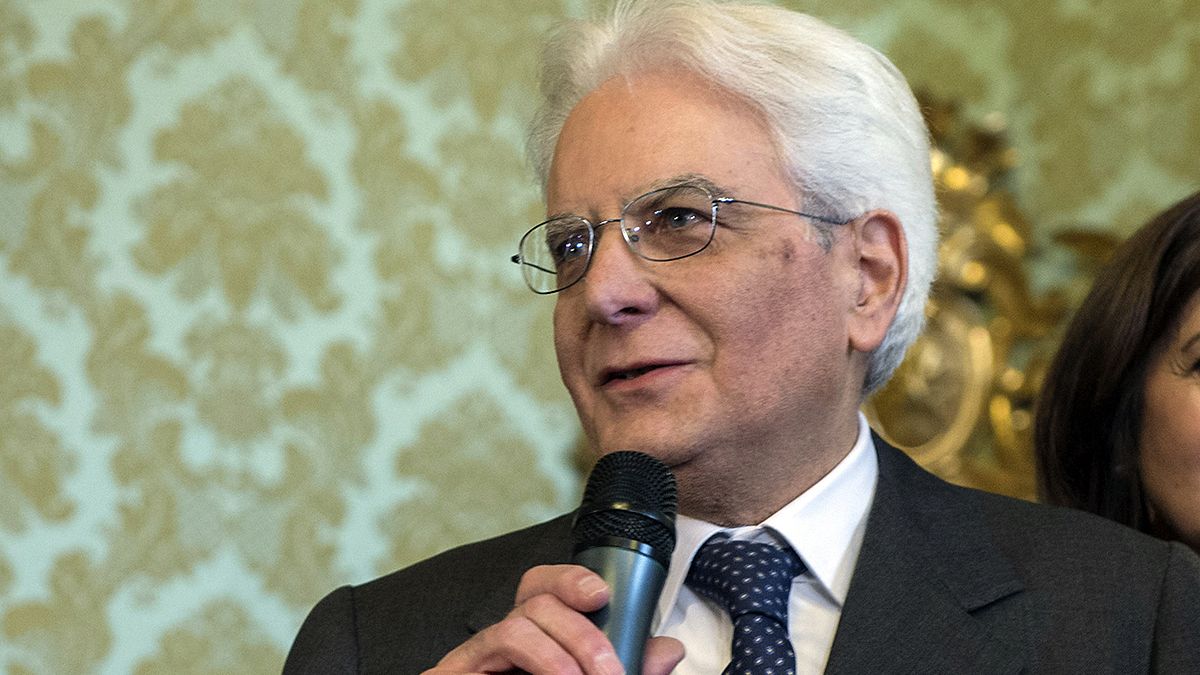From the Constitutional Court to the Presidential Palace, Sergio Mattarella is a man of experience
Sergio Mattarella has been sworn in as Italy’s new president.
The 73-year-old, who has been a judge of the Constitutional Court, is a Christian Democrat of the left and a reputedly abstemious practising Catholic.
And one of this discreet politician’s first remarks once his appointment was confirmed was this: “My thoughts go out, before anything else, to the difficulties and hopes of our citizens.”
Mattarella’s election by the parliament in Rome was clinched on the fourth round of voting. Giorgio Napolitano’s successor was decided by 665 grand electors in favour, out of 1009. Napolitano, 89, resigned before finishing his second term in office. The Italian head of state has limited powers but plays an important role as mediator in crises, and Napolitano was tired.
Mattarella’s election is a victory for Prime Minister Matteo Renzi. He proposed him on his own and by surprise. By winning the gamble he reinforces his and his Democrat Party’s positions. It is a blow for former Prime Minister Silvio Berlusconi, as some 30 of the electors in the Forza Italia party that he leads ignored his bidding to cast their votes blank.
Berlusconi has not forgotten that Mattarella quit the Andreotti government in 1990, in protest over a law granting Berlusconi’s media empire the right to operate three television channels.
Mattarella served as minister for parliamentary affairs, education and defence.
Born in Palermo, Sicily, in 1941, he took a law degree in Rome and then taught, but entered politics after the Mafia murdered his older brother, who was the region’s president, in 1980.
Mattarella was one of the rare Christian Democrats to survive the massive political corruption investigation into public works kickbacks in the 1990s: ‘Tangentopoli’.
Supposedly retired from politics in 2008, among the first official acts of Italy’s first Sicilian president, he honoured those massacred by the Nazis in WWII at the Ardeatine Caves.
The view of a newspaper columnist in Rome
To discuss further the election of Italy’s new president, euronews’ Alfredo Ranavolo spoke to a columnist for the Corriere della Sera newspaper in Rome, Massimo Franco.
Ranavolo: “Italy was used to “interventionism” by the previous President Napolitano, due to a complicated political situation. Will this continue under Mattarella?”
Massimo Franco: “That will depend on the politics. Usually presidents of the republic take part more or less depending on whether or not a politician does their job. I think if politics is going well, Mattarella will take part as little as possible.”
Ranavolo: “Mattarella’s election was good news for prime minister Matteo Renzi. He proposed one person, who became president at the fourth ballot. How much is Renzi strengthened by this outcome?”
Franco: “By A great deal, absolutely. Because he was able to maintain unity, above all, within his party, the Democratic Party, which had such a troubled period two years ago. Also he showed he was able to elect a figure that is the best possible compromise in this political climate. So I think he made a double contribution, which is to be acknowledged.”
Ranavolo: “Renzi wanted a president who’s very different to himself in terms of character and style. What kind of relationship will they have? And what about between the measured Mattarella and a political class that is so often over the top?”
Franco: “This trait of being measured and discreet – a head of state that drives around in a small utility vehicle – is in some ways like a sort of secular version of Pope Francis.”
Ranavolo: “Sergio Mattarella comes from the Constitutional Court. So last year he was the arbiter of laws, now he’ll be the one who signs them into law.”
Franco: “I think the choice of Mattarella is also because he’s a great connoisseur of the constitution, but also because he knows how the state machine works. So in some ways the choice is good for that; it gets rid of speculation about electing someone to the presidential palace who has no political knowledge.”
Ranavolo: “It’s also the first time there’s a president who’s been close to a mafia tragedy, with the murder of his brother Piersanti. Is the value of that symbolic or something tangible?”
Franco: “Mattarella is a Sicilian who fights the mafia; that’s something quite tangible. Because I think that episode, that tragic episode, deeply marked Sergio Mattarella’s life. In the end it was that episode that pushed him into entering politics, replacing his brother.”
